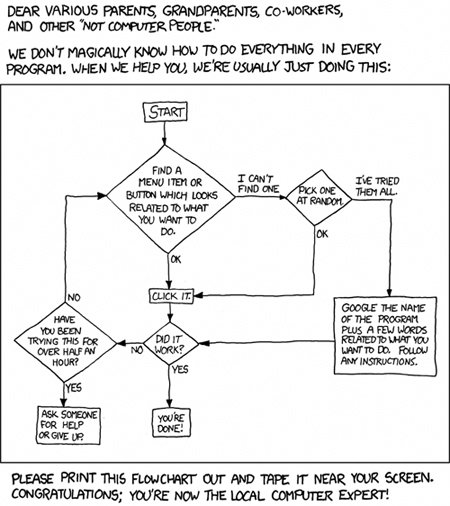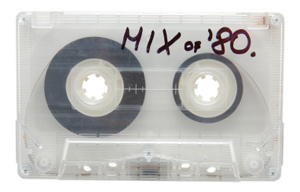Mind the Gap: August 2009 Archives
[If you have time for a second pass, watch the crawler for extra fun.]

This is not precisely arts related, but as particular students of human experience in our lives and work, I found it important. So if you haven't read "Strained by Katrina, a Hospital Faced Deadly Choices" yet (which cost an estimated $400K to report, if reports can be believed [and which leads to a whole other line of discussion]), you might want to set aside your lunch hour today.
Even some 13,000 words later, I still felt that I couldn't fully wrap my mind around what had happened at Memorial Medical Center. At the end of the article, of course, there is no grand right/wrong resolution to the choices faced and made by the people in this story, so I found myself skimming on through the reader comments, as if I might find something there. I didn't. However, some of the comments included additional anecdotes from that time, making it clear that even after reading $400K worth of reporting, there's always going to be more information you don't have. And so unless you were there, and perhaps even if you were, you never really could understand a situation so complex as this.
Maybe this is the point at which we rely on art and ritual to take our hand in such matters.
Like the guilt I feel whenever I glance over at all those documentaries I got from Netflix and still haven't watched but yet refuse to return, I also thought I was alone in my strategy for "fixing" computer issues and learning new software in absence of a house tech guy.
I was wrong.

Brought to you by the brilliant folks at xkcd.com.
I came across an interesting article in the NYTimes about the identical-twin tennis super duo, Bob and Mike Bryan. Their dad, Wayne, wrote a book on how to foster talent in children, and the article includes this quote:
In 2004, Wayne wrote a book, "Raising Your Child to Be a Champion in Athletics, Arts and Academics," which stresses, among other things, the importance for a parent of not stealing a child's thunder. It reads as a manifesto for a sensitive and low-pressure form of hothousing. Wayne spells out very specifically how a parent should approach his child after a match. "First, let your child come to you . . . ," he writes. "Remember, this is her gig, not yours. You say you want to share her glory? No! Let her friends go up to her and share her moment." And win or lose, the script is the same: First question: Do you want water or Gatorade? Second question: Where do you want to get something to eat? Third question, if the child is 16 or older: Do you want to drive or should I? "It's really that simple," he writes. "If the child wants to talk about the match, you listen. But don't critique. . . . Your role is to minimize pressure, not create it."
I thought that would be pretty good advice for the stage moms and dads out there as well, with some obvious substitutions (Do you want a soy latte or shot of bourbon?), but is there anything you do/did for your talented offspring that would add to the "minimize not create" stress mantra? I would give space to the "add more stress" option, but frankly every kid I remember meeting in those competition hallways was already stretched to the breaking point.
Two Weeks - Grizzly Bear from Gabe Askew on Vimeo.
When it's 95 degrees and a million percent humidity, the only thing to love about the NYC subway system may be that inescapable space it gives you to read all the articles in the week's New Yorker. I probably would have skipped Sasha Frere-Jones's piece on Leonard Cohen ("State of Grace," 9/24/09), and missed out on the chance to revisit some favorite tunes and pick up some Cohen wisdom. But it was still 30 minutes to Brooklyn and comfortably cool in the car, and so I settled in.
On Buckley's version of "Hallelujah," for instance, the verse melodies ascend, and the open-throated singing transforms the chorus into a kind of earnest incantation that the songwriter probably wouldn't attempt himself. Cohen may sing about transcendence, but he seems never to fully endorse it.
Later, I dug around in the virtual cupboard and played some tracks once committed to well-worn mix tapes. For a moment I was 19 again, and then suddenly I felt so very much older.
"Young people's attitudes to music may be too complicated and fast-changing to measure." Read the full article.

I liked this piece mostly for what it was willing to acknowledge we don't know about what we don't know. Often when I read yet another article about changes in the distribution of recorded music, I tend to have a Don Quixote flashback sensation. A google search to make sure I wasn't mixing my metaphors turned up this apt quote from the novel [as posted to wikipedia].
Just then they came in sight of thirty or forty windmills that rise from that plain. And no sooner did Don Quixote see them that he said to his squire, "Fortune is guiding our affairs better than we ourselves could have wished. Do you see over yonder, friend Sancho, thirty or forty hulking giants? I intend to do battle with them and slay them. With their spoils we shall begin to be rich for this is a righteous war and the removal of so foul a brood from off the face of the earth is a service God will bless."
"What giants?" asked Sancho Panza.
"Those you see over there," replied his master, "with their long arms. Some of them have arms well nigh two leagues in length."
"Take care, sir," cried Sancho. "Those over there are not giants but windmills. Those things that seem to be their arms are sails which, when they are whirled around by the wind, turn the millstone."

Ever since submitting a proposal to the National Summit on Arts Journalism for NewMusicBox/Counterstream Radio, I've been scratching at the concept of "reinventing arts coverage" in my head. If we could close our eyes, click our heels, and start over, what would journalism about the arts look like? If we were just starting to produce it in 2009, would we still fall into the "profile and review" pattern of discourse, or would we get something radically "other" (besides the 2.0 Twitter review and the Facebook bump)? I considered taking up the Hunter S. Thompson method myself once before, and it appears some new kids on the block are going to try out The Onion approach, but as media consumers about media, what are we seriously hunting for? What do we need reported about the arts and how do we want it packaged?
Personally, when it comes to music in the specific, I guess I'm still looking for a feed of actual music (i.e. audio) that helps me sort through the avalanche of new content that flows out of the recording mines every day, but one that also stretches out further than just the coolest indie rock MP3. I'm hunting for gate keepers who can point me in particular directions (and I very much do mean that in the plural), but then I also want enough multimedia at the ready right there on the page to make a judgment call for myself (I'm trapped between paradigms and I'm not sure I want to get free yet). I don't want complete critical autonomy, but I don't want the alternative to require absolute buy-in to the presenter's viewpoint either. I want surface detail to attract my attention--a teaser track, a biographical or philosophical designation--and then the option to dig in much further when something catches my interest. And "much further" need not always be defined as a chronological unpacking of an artist's life story, either. (Where does that leave the "deep think" pieces? Somewhere inside there, but I'm just not sure what they look like.)
And so here's my thinking: If I can log and track those interests as I discover them and keep following artists along as they create more, that's a huge improvement from what I'm doing/getting now. If I can do all this regularly and efficiently, seamlessly and continually refreshing my music library with new picks and knowledge, even better. Now, I know there are plenty of "if you like" sites already running, but I'm asking for a trusted source to help curate mine, pare down my choices and yet make sure it keeps up its diversity. We all need a place to start, and I'd rather not start with the stuff I already know and love too much. I don't want to miss new breakthroughs because I'm still listening to everything that sounds like Will Oldham.
Okay, I'm closing my eyes, clicking my heels, I can see it now. Wait, what? Oh, you want me to tell you how we're going to pay for all this? Damn, I hate when dreams come with accountants and their realistic spreadsheet desires. And I doubt I could sell anyone on a subscription model in this economy.
I'm a little late to this one, but wow: My grandmother may finally care about what I do for a living.
[via Tom Service/Guardian]
And if you're still looking for procrastination material: Unrelated to music, except in the "Q: Where were you before you moved to Williamsburg? A: Oberlin." kind of way...
[via Dial "M" for Musicology]
If the narrative alliteration starts to grate, you can skip ahead to 1:45 for the silent show.
I admit the nerd in me wondered if we could hire them to do a choral version of 4'33''. (I should probably have kept that one to myself, huh?)
In the midst of the last Blogger Book Club, Corey passed me this quote from an essay by Andrew O'Hagan covering new books on The Smiths and Morrissey. It's well worth reading in its entirety, but this was my hook:
Pop music is nostalgic in its bones--it is part of Morrissey's gift always to have known this--and fans who adhere to its magic are in love with something that was passing as soon as it was made. True fans live in exile: that is their nature, their glory and their tragedy. People who love Elvis actually love a time when it was possible to be defined by your love of Elvis; people who continue to admire The Undertones want to believe they recognise an essence that defies the present.
A few days later, my pal Daphne let me page through her copy of Go Ask Ogre, a collection of intensely personal letters a young woman wrote to the front man of Skinny Puppy. In her distress, she confided in a stranger who it seems she felt closer to than most, if not all of the people around her.

Long before you could be "friends" with artists on MySpace and stalk them on Twitter, you could join their fan club, buy posters of them to paste up on your wall (your real-life bedroom wall) and feel that you belonged in their special circle even though they had no idea who you were. (You may have had Bye Bye Birdie fantasies, but for most, that's not really how it went down. You signed up for the dream, not the reality.) Often the artist, as much as or even more so than the art, represented safe harbor, conjured a sense of identity, bridged confusion and pain (with or without a heavy dose of cliché, depending on your tastes), and offered companionship not in silence, but in songs that never asked for anything back.
I got lost thinking this over, tried to get unjaded enough to follow my gut on this and see how much people need music to actually survive in modern society, but even more so, depend on and cling to musicians.
You can sing along with them if you want to. No one else will care.
Here's a little something for those who lunged for their laptops before the cat was fed this morning, and then regretted it. (Not that I would know anything about that.)


Slate published an interesting piece on Friday that can basically be boiled down to "why playpens are a great or terrible contraption," aptly demonstrating by referencing arguments on both sides how modern parents looking for basic advice are driven INSANE. And if that won't do it, websites like urbanbaby.com--a resource the writer characterized as mixing "the neurotic firepower of Woody Allen's 1970s oeuvre with the conviviality-tinged-with-hostility of the Mos Eisley cantina in Star Wars"--will finish the job.
But seriously though, I did time in a playpen and here I was thinking I was creative in part because my parents told me to just please go outside and entertain myself. What about you--did very careful hands-on parenting lead you to where you are today, or can we assure the doting class that they can just chill out and their little Meryl Streeps will turn out just fine on their own?
Now, my parents did schlep me to art classes and violin lessons, so I don't mean to paint them as slackers in any regard (in fact, my dad actually kicked things off by constructing my four-year-old self her very own art easel). But they certainly didn't obsessively hover about or constantly try to "engage" me. Instead I made costumes and choreographed entire musicals in the neighbor girl's basement that no adult ever had tickets to. (And I doubt they felt bad about being kept off the guest list.)
John sends this link along with the note: "Any responsible music journalist would have to say something about this." (Attention delicate readers in the crowd: You probably want to skip this clip.)
Alas, I fear I am left speechless.
Sadly, these folks are not. Corey notes the operatic possibilities inherent within. Anyone?
(Speaking of forged birth records, do we have any proof that ol' Orly here is not actually Sasha Baron Cohen's lost twin sister?)
This past weekend, Charles Blow opined in the New York Times that "the music industry's deathwatch kicked off about a decade ago, but it seems the vigil could soon be over."
Over?
Over!
What will we talk about at music industry conferences now? Wait, what? No music industry conferences! Not even cocktails?
I particularly liked the scary graphic, which I can't quite figure out how to read, but it certainly seems like a vision of Doom!
Commenter Ladislav Nemec of California responded to Blow's article by offering up a "Let them eat cake" solution: Sell only classical music. "I used to buy only 'classical music' written, for the most part by Very Dead White Men....Blow does not speculate what the future holds. It seems to be just wonderful: the Stars of Pop Music will get much, much less money, will not be able to build Neverlands and, possibly, will use fewer drugs."
I'm not sure that is exactly how it will play out. It may be the "anyone can make a record and distribute it online" age, but it still takes cash and/or the talent/skill/equipment equivalent to make a great recording. And if recording still costs, it's the performers already making bank on their live shows who are going to have the discretionary cash to keep putting record after record out into the marketplace. No, I worry about the folks who hustle and hustle and finally make a record, maybe even make a (relatively) big splash record and get to be interviewed on NPR and have nice things blogged about them. And then only a handful of people buy it. And then everyone goes home, on to the next thing, and the artist is left with a closet full of unsold cds and a creative hangover.
So the supply and demand balance is off. The delivery methods aren't attractive enough to consumers to close the deal. We don't trust the major labels and there are too many indie ones for a consumer to track. Journalists and the music mags that once employed them are riding their very own personal downward spiral in the wake of the great, voracious, unharnessable maw that is internet chatter. And actually that's the state of the music industry that I know, and it's a crueler picture than any pie chart could present.
By Devin Hurd
In no particular order, my impressions of The Whuffie Factor by Tara Hunt:
1) The concept of whuffie--and the creative application of evolving social networking mechanisms--is strong. It's stretched a little thin over the course of this read, but it is thought provoking nonetheless.
2) While heavy on anecdotes, it is well written. Tara Hunt establishes her own credibility on this topic through a significant dose of practicing whuffie and her impressive contacts in industry.
3) Much of the advice in this book felt backwards to me. The assumption was that marketing concepts are easy, while sincere interaction with online communities is hard. I find the opposite to be true.
4) Business writing promotes thinking of people as "customers." In the arts, I like to substitute the Anthony Braxton term: "friendly experiencers."
5) This book did continually prod me to think more about my own online
presence via blogging and social network activities. Most of which I
engage in without a thought toward selling or promoting anything.
